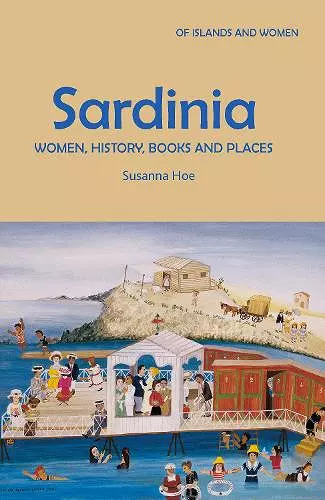Sardinia
Women, History, Books and Places
Format:Paperback
Publisher:Holo Books The Arbitration Press
Published:17th Mar '22
Should be back in stock very soon

Marianna Bussalai, the poet and anti-Fascist activist of the Barbagia region, wrote that she felt humiliated at school 'wondering why, in the history of Italy, Sardinia was never mentioned. I deduced that Sardinia was not Italty and had to have a separate history'. It is not surprising that islands tend to be different from the country to which they are in some way attached. But Sardinia's personality differs even more from that of Italy than one might expect. This book explores that difference through the island's women. Sardinia has been inhabited for longer than many European countries; of its earlier peoples, the best-known are the pre-historic Nuraghic. The hundreds of tall and mysterious megalithic towers which still grace the landscape are the most outward distinctive remnants of their civilisation. But it is from the myriad and tantalising clay statuettes found in ritual wells that it is possible to suggest aspects of women's lives. These are now in archaeological museums, such as that of Cagliari; many of the wells still exist. There followed invasions, colonisations and settlements - often bringing women exiles or landowners - by phoenicians, Carthaginians, Romans, Muslims, Catalans, Genoese, Pisans, Spaniards and Savoyards, until finally the island became part of a united Italy, But, as the Swede Amelie Posse-Brazdova, sentenced to exile in Alghero during the First World War, was to write, 'For many centuries the Sardinians had been so fooled and exploited by the Italians, especially the Genoese merchants, that in the end they began to look upon them as their worst enemies.' However much that enmity is now little evident, Sardinia is still very much its own place, with its own languages. This is true of Alghero with its distinctive aura of Catalan occupation, of Marianna Bussalai's always intransigent Barbagia, and of Oristano where perhaps Sardinia's only well-known historical woman, Eleanora d'Arborea, ruled as Giudicessa in the fourteenth century. Although still particularly revered, she epitomised the strong and advanced women, from peasants to poitical activists, who emerge here from those often turbulent centuries.
I have immensely enjoyed reading this book about women from a wide range of backgrounds who might otherwise have remained unknown to history. Owain Wright, Leeds Beckett University
ISBN: 9781919631806
Dimensions: unknown
Weight: unknown
368 pages